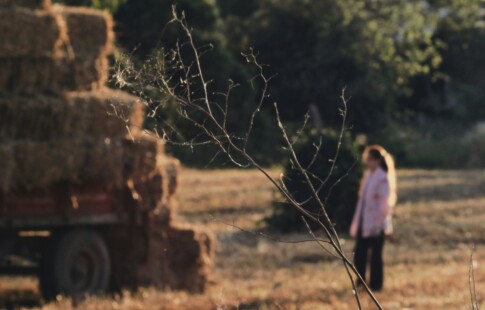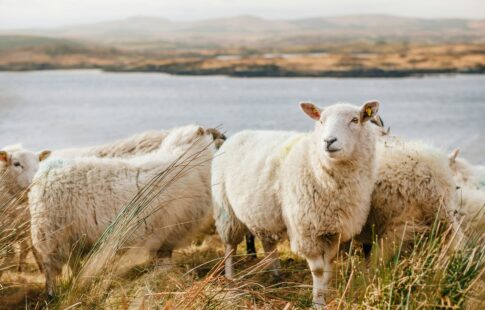
What Can Chickens Not Eat? Foods to Never Feed Chickens
We are reader-supported. When you buy through links on our site, we may earn affiliate commission.
Which is safer — castor or cabbage? And which foods give eggs a funky taste? Here is what chickens can and cannot eat, plus some foods that are suspect.
Toxic Substances
This isn’t an exhaustive list, but it includes many household foods people commonly have questions about. Chickens cannot safely eat:
- Rhubarb
Frost-damaged rhubarb often contains a high concentration of oxalic acid, which is very toxic to chickens. Fresh rhubarb also contains anthraquinones that may cause diarrhea.
- Coffee
Coffee grounds are great for composting, but not so much for feeding chickens. Never give your birds caffeine.
- Alcohol
Are you making coque au vin? Remember that the wine goes in after the chicken is cooked, not while it’s still running around! Alcohol is bad for chickens, although don’t worry too much if they eat a small amount of fermented fruit.
- Avocado Pits and Skins
The skin and seed of an avocado contain a poison called persin. Chickens won’t be able to eat an avocado pit on their own anyway, but never chop up the skin or pit for your birds to eat.
- Castor Beans
Also called castor oil seeds or castor bean husk, these beans contain ricin, a deadly toxin. In fact, ricin is so infamously toxic that it’s often part of murder plots in mystery novels and TV dramas.
- Mexican Poppy Seeds
Argemone ochroleuca and Argemone mexicana — both called Mexican poppy — contain toxic isoquinoline alkaloids. They can cause stunted growth, fluid retention, and death in young chickens.
- Raw Beans
Many people learn as children that birds cannot eat uncooked rice. Surprisingly, chickens can eat raw rice, but it’s raw beans that really cause an issue. They contain a compound called hemagglutinin that disrupts digestion.
- Raw Cassava
Cassava root contains cyanogenic compounds. These substances can turn into cyanide in the stomach and be deadly for chickens.
- Moldy Food
It’s fine to feed your chickens mushy fruit or vegetables, but if food crosses the line to being moldy, throw it out. Different types of mold have adverse effects on chickens.
- Excessively Salty Food
Chickens shouldn’t have too much salt in their diet. They typically need between 0.12% and 0.20% sodium in their feed. If measured as salt or NaCl, they need between 0.40% and 0.60%. You can find this information on the feed bag’s nutrition label. In general, don’t feed your chickens excessively salty food like bacon, cured meat, or chips.
Foods That May Be OK, But Proceed With Caution
The following foods aren’t necessarily toxic, but they can sometimes cause problems:
1. Carrion
Poultry keepers go back and forth on this one. Chickens naturally eat raw meat if given the chance, with lizards, mice, and bugs being some of their favorite foods.
The birds also readily devour animal carcasses — fresh or old — and will even eat dead chickens. They truly are one of the most versatile eaters in the animal kingdom, which is one reason they’re so popular as beginner farm animals or pets. Think of them as tiny T. rexes who just happen to be fluffy.
Meat is unquestionably an important part of chickens’ diets, but the jury is still out on whether it’s safe to feed your birds carrion. If you want to err on the safe side, avoid feeding your chickens rotting meat, since it could contain harmful bacteria.
2. Whole Eggs
Chickens love raw or cooked eggs. However, never give your flock whole eggs in the shell, whether hardboiled or fresh, because it can teach them bad habits. Some chickens become voracious egg-eaters and will start pecking at eggs in the nest box, breaking them open to eat the yolk. After all, you taught them that eggs have a delicious treat inside!
To feed your chickens this nutritious food, always cook the eggs and cut or mash them up beyond recognition. Chickens will also happily eat crushed or ground eggshells as a source of extra calcium.
3. Long, Tough Grass
Free-range chickens tend to eat just the tips of grass, eating a little here and there before moving on to another plant. If you feed your chickens long, tough grass that you pulled or dug up, make sure to cut it into smaller pieces. Chicks especially can die from choking on grass that’s too long or fibrous.
Ideally, feed your chickens the soft, newly green grass tips rather than the thick-stemmed parts of the plant.
Foods That May Give Eggs a Weird Taste
What you feed your laying hens can impact the taste of their eggs. Some people swear the following foods make eggs taste funky:
- Onions and Garlic
The jury is still out on whether alliums give chicken eggs a strange taste. However, anecdotal reports from chicken keepers indicate that garlic and onions are best added to an omelet while you’re cooking it — not incorporated into the egg itself.
- Fish Meal or Oil
A 2010 study found that hens fed microencapsulated fish oil laid eggs with a more sulfurous taste. Scrambling the eggs didn’t yield any significant taste difference, but hard-boiled eggs from the fish-fed hens tasted pretty rank. The eggs did contain more long-chain fatty acids, which are healthy, but you can skip the extra step of feeding your chickens fish and simply eat it yourself.
- Flax Seed or Oil
There’s hard evidence for this one, too. According to a panel of trained taste testers, chickens that ate a diet containing 7.5% flax oil laid eggs that tasted more “oceanic.” That’s putting it poetically — in layman’s terms, many people report that a flaxen diet makes chicken eggs taste like fish. It won’t hurt you or the chickens, but it’s not exactly pleasant.
What Can Chickens Not Eat?
They may be one of the world’s most voracious omnivores, but there are a few foods chickens cannot eat. In general, rhubarb, excessively salty food, avocado skins, mold, and raw beans are some of the most common household foods chickens cannot eat. You may also want to avoid feeding your hens fish oil, onions, garlic, and flax seeds to prevent weird-tasting eggs.
Above all, chickens need a balanced diet. The easiest way to accomplish that is by giving them a well-rounded chicken feed and supplementing it with table scraps as a treat.
Share on
Like what you read? Join other Environment.co readers!
Get the latest updates on our planet by subscribing to the Environment.co newsletter!
About the author
Rachel Lark
Rachel serves as the Assistant Editor of Environment.co. A true foodie and activist at heart, she loves covering topics ranging from veganism to off grid living.





